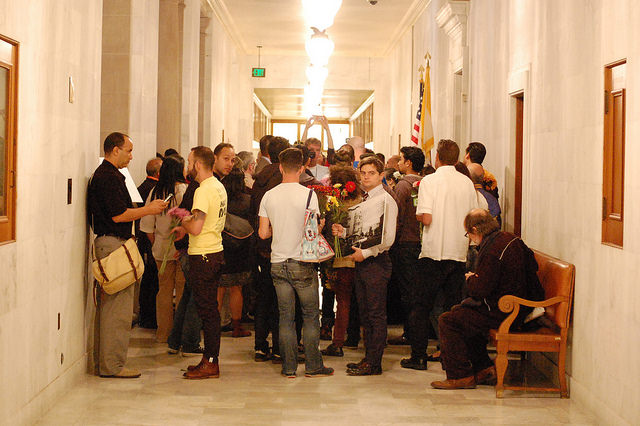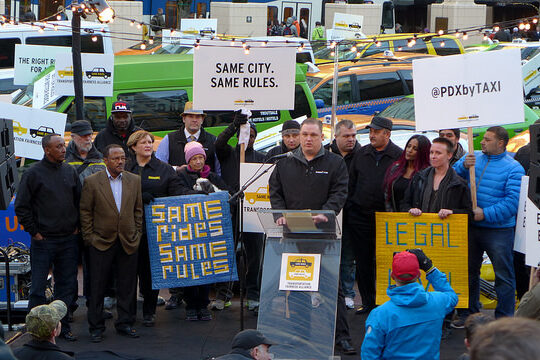
Homejoy CEO Adora Cheung appears on stage at the 2014 TechCrunch Disrupt Europe/London, at The Old Billingsgate on October 21, 2014 in London, England. Image: TechCruch (Flickr)
Platforms that enable users to come together and buy/sell services with confidence, such as Uber, have become remarkably popular, with the companies often transforming the industries they enter. In this blog post the OII’s Vili Lehdonvirta analyses why the domestic cleaning platform Homejoy failed to achieve such success. He argues that when buyer and sellers enter into repeated transactions they can communicate directly, and as such often abandon the platform. Homejoy was slated to become the Uber of domestic cleaning services. It was a platform that allowed customers to summon a cleaner as easily as they could hail a ride. Regular cleanups were just as easy to schedule. Ratings from previous clients attested to the skill and trustworthiness of each cleaner. There was no need to go through a cleaning services agency, or scour local classifieds to find a cleaner directly: the platform made it easy for both customers and people working as cleaners to find each other. Homejoy made its money by taking a cut out of each transaction. Given how incredibly successful Uber and Airbnb had been in applying the same model to their industries, Homejoy was widely expected to become the next big success story. It was to be the next step in the inexorable uberisation of every industry in the economy. On 17 July 2015, Homejoy announced that it was shutting down. Usage had grown slower than expected, revenues remained poor, technical glitches hurt operations, and the company was being hit with lawsuits on contractor misclassification. Investors’ money and patience had finally ran out. Journalists wrote interesting analyses of Homejoy’s demise (Forbes, TechCrunch, Backchannel). The root causes of any major business failure (or indeed success) are complex and hard to pinpoint. However, one of the possible explanations identified in these stories stands out, because it corresponds strongly with what theory on platforms and markets could have predicted. Homejoy wasn’t growing and making money because clients and cleaners were taking their relationships off-platform:…



